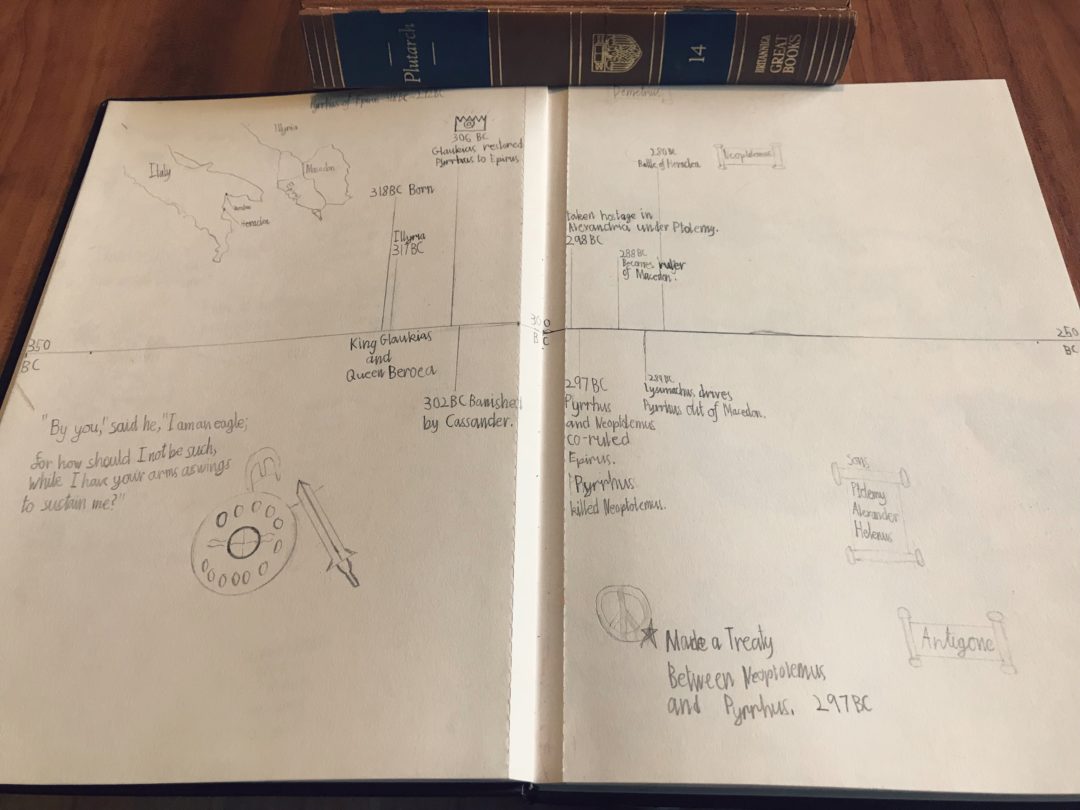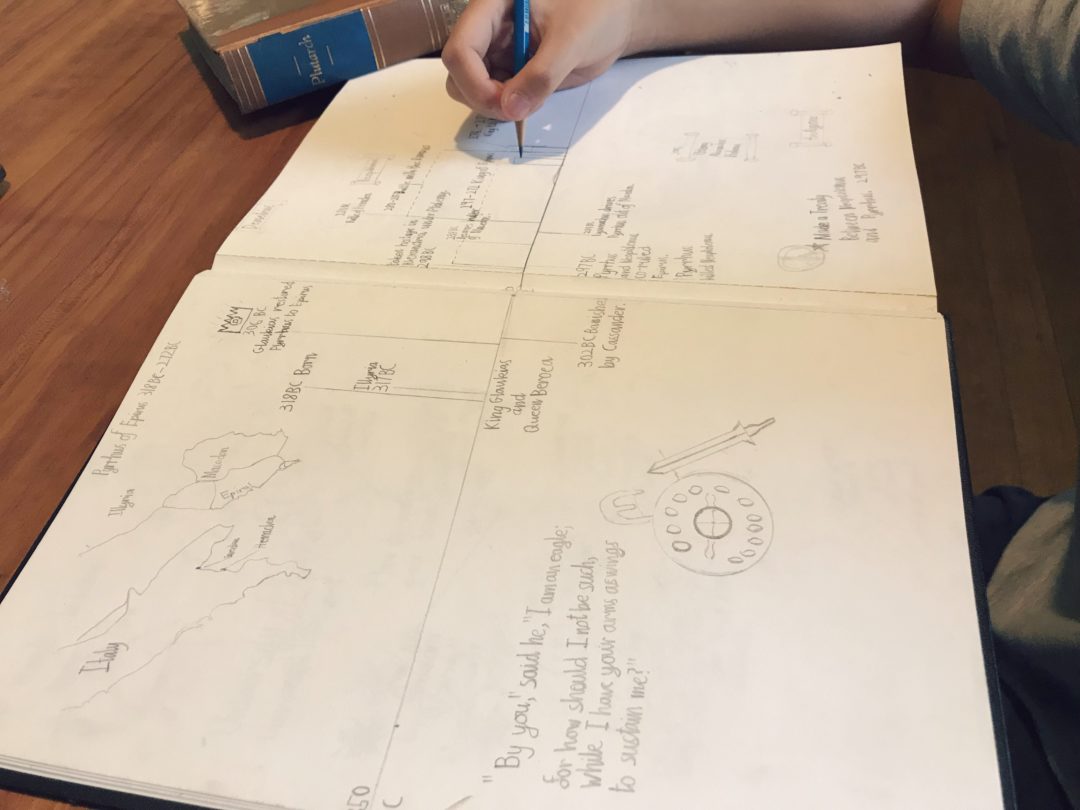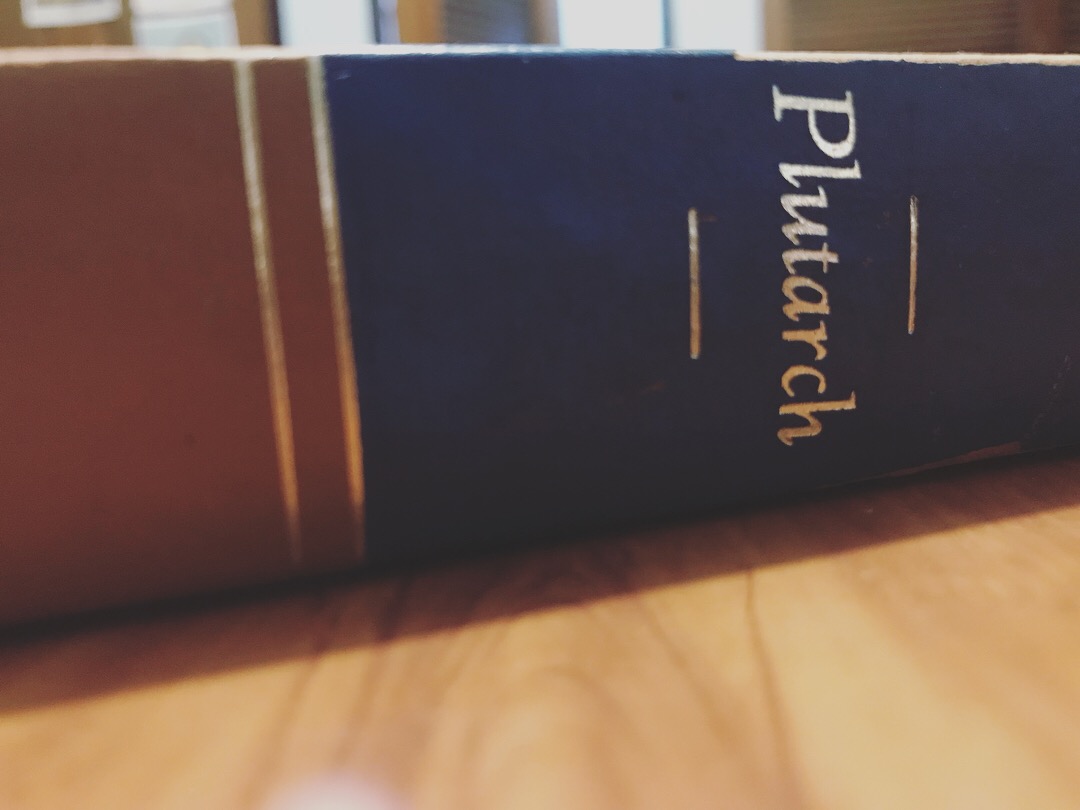It’s our first school year with Plutarch.
The book we use is from the library of my children’s grandfather. It has this musty smell from it being so old; pages so brittle we have to gently flip through them. It’s one of those books that we grew up seeing beside Plato, Archimedes, Euclid, Aristotle, and with all the other Brittanica books that have been collecting dust.

I never thought I’d read it but thanks to Charlotte Mason’s influence, here we are enjoying it with its somewhat archaic language. We’re reading it slowly, 15 minutes at a time.
We started reading Plutarch beginning Year 4/Grade 4. It was a bit daunting to read but years of reading Shakespeare, Parables of Nature, Pilgrim’s Progress, and KJV bible have prepared us for this. Otherwise, I can imagine us probably ending up in tears after each 15 minute session.

In one of our weekly readings, we encountered a Roman who would rather have an honorable defeat than cheat his way through battle. We also met a Greek King who was courageous and skillful, but not as wise.


The idea that a person could change from being a great leader to a tyrant was presented to my child as he read one of the lives in Plutarch. It caused him to ponder on the implications of Power.
He noticed what was wrong. He was moved. He questioned.
A reading of Plutarch almost always ends with grand conversations or discussions about ideas like truth, fortitude, dishonesty, corruption, desire, failure, strength. And the fact that this is an ancient text gives a clear message that honesty is valued no matter what period one is from. That bravery is commendable. That loyalty is possible.
Ancient Studies, just like any other, should not be limited to the who, what, where, when, how — more importantly, it should go beyond these facts and propose answers to the question ‘why.’
In fact, dates, places, events, names might not be remembered. In the end, ideas that lead a child to care are what stays with him, and what truly transforms him.
This has often been quoted amongst Charlotte Mason circles but here it is again. Let it sink in.
“The question is not, — how much does the youth know? when he has finished his education — but how much does he care? and about how many orders of things does he care? In fact, how large is the room in which he finds his feet set? and, therefore, how full is the life he has before him?”
————
Some random links about why and how to study Plutarch here, here, here, and here. Hope this helps.
